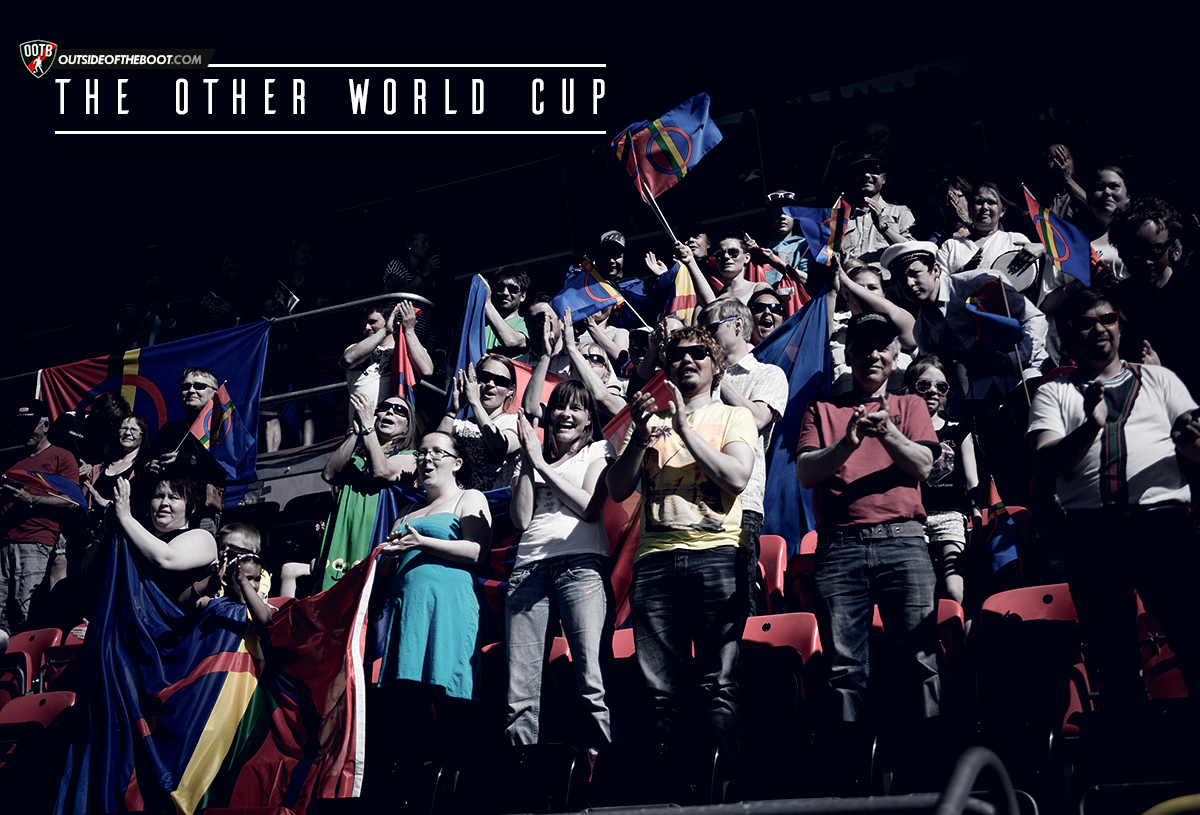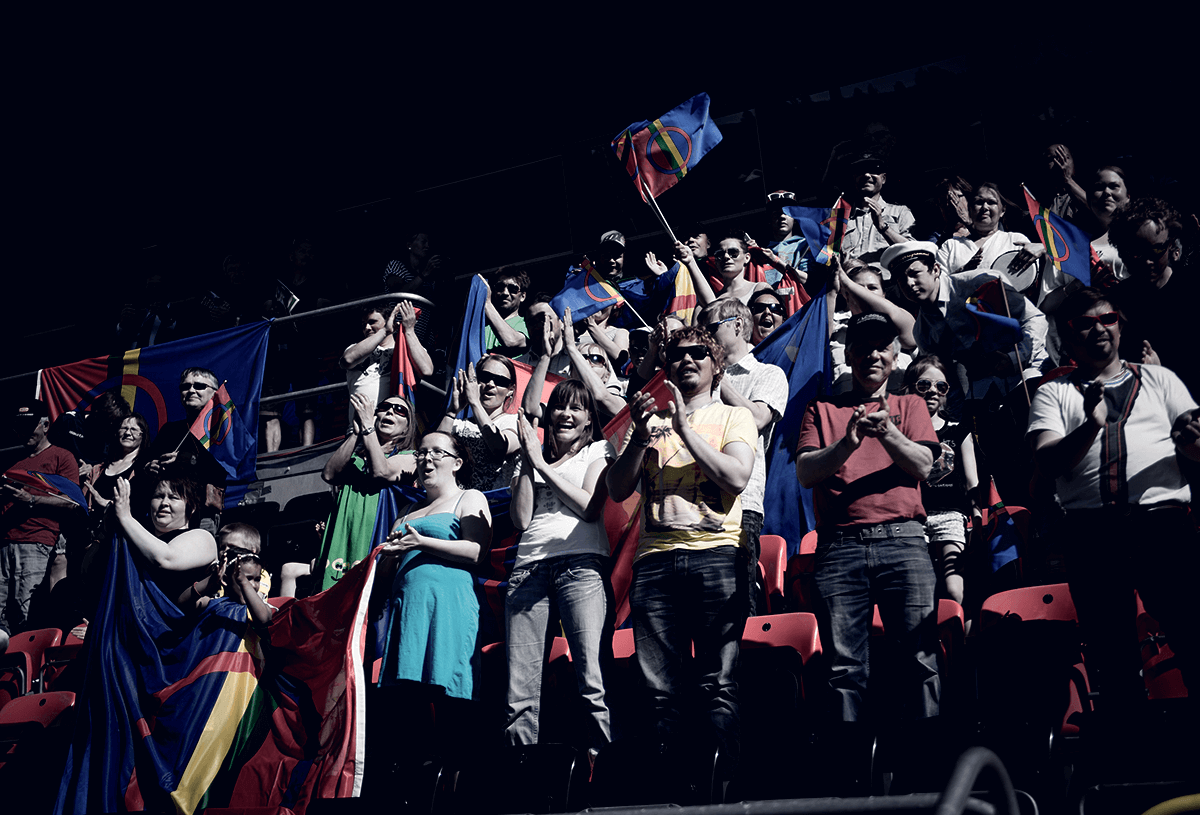
Oliver McManus interviews the co-founder and General Secretary of CONIFA, Sascha Düerkop, ahead of the CONIFA World Cup final.
Many of you won’t have heard of the Confederation of Independent Football Associations, no less the 35 nations, dependencies, unrecognized states, minorities, stateless peoples, regions, and micronations that they represent.

Over the past eight days, 12 teams have been taking part in the second edition of the CONIFA World Cup, to fight for the right to be the ‘best football team outside of FIFA’, and it’s been a cracking tournament with 72 goals coming from the first 18 matches.
Ahead of the final which took place on 5th June, in Abkhazia, I caught up with co-founder and General Secretary of CONIFA, Sascha Düerkop, on a wide range of issues.
(OM) So, we’re in the midst of the 2nd CONIFA World Cup, currently taking place in Abkhazia, just tell us how the whole tournament came about and the reception it has received since the beginning?
(Sascha) We had visited to see the infrastructure of Abkhazia for the first time in 2014 and were deeply impressed not only by the high standards of stadiums, hotels and infrastructure, but mainly by the determination and the passion of the Abkhazian people to host a tournament one day. After our World Football Cup 2014 in Sweden we asked all our members to submit bidding documents in case they are interested to host the World Football Cup 2016 and Abkhazia handed in by far the best overall bid. Thus, in 2015, our ExCo unanimously decided to grant Abkhazia the hosting rights.
The whole tournament for all of us is an enormous success and we will probably look back in a few years to this World Football Cup as the first fully professional that got a very positive reception globally. The people in Abkhazia are 100% behind their team, but also attend and support the others teams all over the week. Thanks to the impressively welcoming and open minded Abkhazian people this tournament easily exceeded all our expectation.
What are the challenges for setting up such an organisation like CONIFA, and what are the goals for the future?
The biggest challenge has been and still is the financial part. Most of our members are not gifted with enormous budgets and neither are we. Finding sponsors, that support us in a sustainable way, proved to be hard for us so far.
That said one of our goals is to be financially stable and being able to finally work professionally full time for the good of our members, as they deserve even more support.
In the long run we hope to “kick back” and actively support more and more exchange programs, cultural programs and development projects within our member’s nations.
The County of Nice won the inaugural CONIFA World Cup, now, with no financial rewards on offer, what impact would you say victory has on the regions?
When the team arrived back in Nice there were approximately 5000 people awaiting them at the airport to welcome their heroes. This was, most of all, a very proud moment for the whole region and the people living there. What remains is that we put them on a global map and people keep asking us for the region 2 years after they lifted the trophy. So, in a very sustainable way, we enabled the County of Nice to share their story, which was broadly unknown, with the world.
How would a team go about applying for CONFIA membership, is there a specific criteria?
We do have 10 criteria that we use for our internal decision making process, yes. Those range from “being a member of the UN” to “being a minority listed by the Minority Rights International Group”, just as examples. If you meet at least one criteria the Executive Committee will support your case and accept you as a temporarily full member until the next Annual General Meeting. On this AGM our teams then have the last word and vote you in or out ultimately. So far only a single application, which came from a micronation was rejected.
And finally, what would you say the message of CONIFA and, in particular, the World Cup is to the wider footballing world?
The most central message we have to the football word is: “Let people share your passion and play football, without looking at their passports.”
As Sascha alluded to, CONIFA, and their World Cup, serves as a beacon of hope and prosperity for the teams that take part.
The 35 members stand across all the continents of the earth, with the exception of Oceania, and represent over 322 million people on this planet. And yet, for such a large community, they often go shunned by the rest of the world.
The CONIFA World Cup is an opportunity for these people to cast aside any preconceptions, to display their talent and write a new reputation.
Incredibly, the organisation survives on an income of a mere €9,924 a year and yet their message is spread far and wide – in the year 2015, their world growth was a massive 198% and, with two new teams already this year, they show no signs of slowing down.
With regards to the World Cup itself, the inaugural edition was in 2014 – held in Ostersund, in the Sapmi region of Sweden. It is within the DNA of CONIFA to spread a cultural renaissance throughout their matches and, it is as such that, accompanying the World Cups is a week-long festival celebrating the diversity of each team that takes part.
The 2016 edition, held in Gagra and Sukhumi, Abkhazia, was the first to incorporate a qualification process and, as a result, we’ve seen eight teams make their debut in the event.
Support throughout the tournament has been nothing short of incredible, with hundreds of fans filling the stadia to watch the, sometimes fiercely competitive, sometimes immensely one sided, matches be played out. Not only that, but record numbers of people have watched the games streamed live on the CONIFA website, proving that the federation has a truly global audience.
Whilst progress for the next event, in 2018, are already underway, this is the beginning of a new era for CONIFA; with an expanded number of teams expected to join and take part in both the European and World Cup events; a move into beach soccer and the women’s game; as well as a relocation of HQ to the Isle of Man, all taking place.
With all that in the works, it is looking like there is a really exciting future for CONIFA, but all that’s left to find out is who will be the 2016 CONIFA World Cup winners – Panjab take on the hosts Abkhazia for the honour, a cracking match in prospect and a place in eternal history for the winner.
Editor’s note: Abkhazia sealed the World Cup with a dramatic penalty shootout win against Panjab
Written by Oliver McManus
- Syria: The path to World Cup qualification - July 8, 2020
- The story of South Africa’s topsy-turvy footballing journey - November 8, 2017
- Interview: Sunil Chhetri on his foreign stints, Bengaluru FC, and the rise of Indian football - October 24, 2017




















































